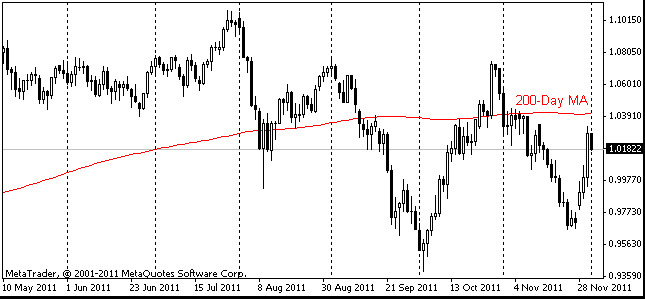EUR/usd
Yesterday the single currency continued its decline on the increasing bids that the ECB would keep tempering their monetary policy. So, market participants have focused on the amount of the ECB's reserves. The latter have already made 2.73 trln euros. But the right way to compare the ECB's reserves with those of other CBs is to consider them in relation to GDP. And at this point they make impressive 29% against approximately 20% of the federal reserve and the Bank of England. It's worth mentioning that the ECB's balance has doubled over the past six months and is very likely to grow in the coming months. A soft monetary policy usually causes the decline of the currency, but earlier, when Trichet was the head of the ECB, the markets understood that inflation is of utmost importance here. Even when confronted with the all-round slowdown signs accompanied by the fast price advance, Trichet raised the rates. He did this in the summer of 2008 and twice in 2011. Later on the bank had to make its policy even softer. But in 2008 the policy was mainly tempered through the rate lowering. Now under draghi this resource has become minimal. In addition, the problem consists not in high rates but in the unwillingness of market participants to issue loans to each other. Moreover, the banks, which formally have money, do not want to lend it even to the governments. These days Italy has been holding auctions the results of which are rather controversial. Italy has generated a smaller income from selling long-term securities than originally expected (7 bln. against the expected 9 bln.). But the 10-yrs yield is still remaining close to 7%. Why is this so important? Because in 2012 Italy will need to hold auctions to attract 450 billion. The single currency fell to 1.2857 over the last 24 hours, reaching its lowest level since September 2010, but it has recently jumped into the 1.2950area, which is close to the yearly lows and approximately to the level where the currency started 2011.

GBP/USD
The British pound started to decrease together with the euro on Wednesday, but afterwards it dipped much lower. Sales of the single currency and risk assets caused the decline of the British currency not only against the dollar and yen, but even against the euro. This gives only more evidence to our supposition that the sales bear just a speculative nature in the thin New Year market, where traders are trying to walk far away from the starting levels of the year. The pound began the year at 1.55 and is finishing it near 1.54. Apart from house prices from Nationwide, the BOE's statistics on the volume of housing equity withdrawals will be published today. Statistics for the previous 13 quarters displayed a continuous decline, and in the second quarter of this year there was the maximum drop on record (statistics have been collected from 1970). Some slowdown, though not that great – 7 bln against 9 bln, is expected following the results of the third quarter.

USD/JPY
The yesterday's behaviour of the Japanese yen was just like we predicted. The USD/JPY returned to the level of 77.60 on trading in America. And at the opening of Asian markets it rewrote the local minimum, now it is at 77.50. Besides, the EUR/JPY and GBP/JPY are flirting with the interesting levels of 100 and 120. It is still difficult to say whether they will find any support at these levels. Most probably, we will get the answer to this question only next year.

AUD/USD
Despite the failures of European vis-à-vis, gold and flight to protective dollars and yens, aussie lives its own life. The currency managed to win a foothold yesterday, and also is gradually growing today. The support area of 1.005 we described yesterday was once again tested yesterday. The test was a success; the pair was again pushed one big figure up. Any heavy traffic is unlikely today as markets will be falling asleep one by one. Happy New Year!
